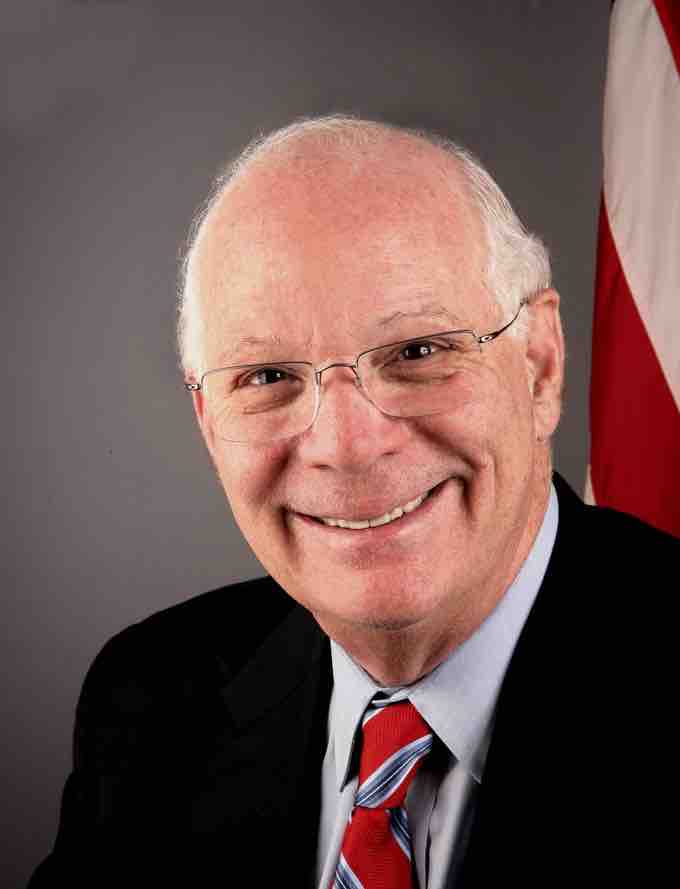The incumbent is the existing holder of a political office. It is usually used in reference to elections where races can often be defined as being between an incumbent and non-incumbents. Incumbents have structural advantages over challengers during elections. The percentage of incumbents who win reelection after seeking it in the U.S. House of Representatives has been over 80% for more than 50 years, and is often over 90%. Additionally, shifts in congressional districts due to reapportionment or other longer-term factors may make it more or less likely for an incumbent to win re-election over time. A race without an incumbent is referred to as an open seat because of the lack of incumbency advantage and they are the most contested races in an election.

Longtime House Incumbent, Ben Cardin
Current Senator Ben Cardin was a longtime incumbent in the House of Representatives, serving from 1987 to 2007.
When newcomers vie to fill an open office, voters tend to compare and contrast the candidates' qualifications, positions on issues and personal characteristics in a relatively straightforward way. Incumbents traditionally win their party's nomination to run for office and unseating an incumbent during a primary elections is very difficult. The timing of elections may be determined by the incumbent instead of a set schedule. The incumbent often has more name recognition because of their previous work in the office they occupy. Incumbents have easier access to campaign finance and government resources that can be indirectly used to boost a campaign.
In general, incumbents have structural advantages over challengers during elections. The timing of elections may be determined by the incumbent instead of a set schedule. For most political offices, the incumbent often has more name recognition due to their previous work in the office. Incumbents also have easier access to campaign finance, as well as government resources (such as the franking privilege) that can be indirectly used to boost a campaign. An election (especially for a legislature) in which no incumbent is running is often called an open seat; because of the lack of incumbency advantage, these are often amongst the most hotly contested races in any election.
In the United States, incumbents traditionally win their party's nomination to run for office. Unseating an incumbent president, senator or other figure during a primary election is very difficult, and even in the general election, incumbents have a very strong record. For instance, the percentage of incumbents who win reelection after seeking it in the U.S. House of Representatives has been over 80% for over 50 years, and is often over 90%.
However, there exist scenarios in which the incumbency factor itself leads to the downfall of the incumbent. Popularly known as the anti-incumbency factor, situations of this kind occur when the incumbent has proven himself not worthy of office during his tenure and the challenger demonstrates this fact to the voters. An anti-incumbent vote is one exercised against elected officials currently in power. It allows the voters to register their discontent with sitting government officials, particularly when protesting against certain actions taken by the government or the elected officials in question. An anti-incumbency factor can also be responsible for bringing down incumbents who have been in office for many successive terms in spite of performance indicators, simply because the voters are convinced by the challenger of a need for change. Nick Panagakis, a pollster, coined what he dubbed the "incumbent rule" in 1989—that any voter who claims to be undecided towards the end of the election will probably end up voting for the challenger.
Voters first have to consider the records and antecedents of the incumbent. Only if they decide to "fire" the incumbent do they begin to evaluate whether the challenger is an acceptable alternative. At the same time, if the challenger is determined to be completely unacceptable, voters might reluctantly vote for the incumbent. There are situations in which the incumbency factor leads to the downfall of the incumbent. This is known as the anti-incumbency factor. Situations of this kind occur when the incumbent has proven himself unworthy of the office during his tenure and the challenger convincingly demonstrates this fact to the voters. An anti-incumbency factor can also be responsible for voting out incumbents who have been in office for many successive terms in spite of performance indicators, simply because the voters are convinced by the challenger of a need for change.